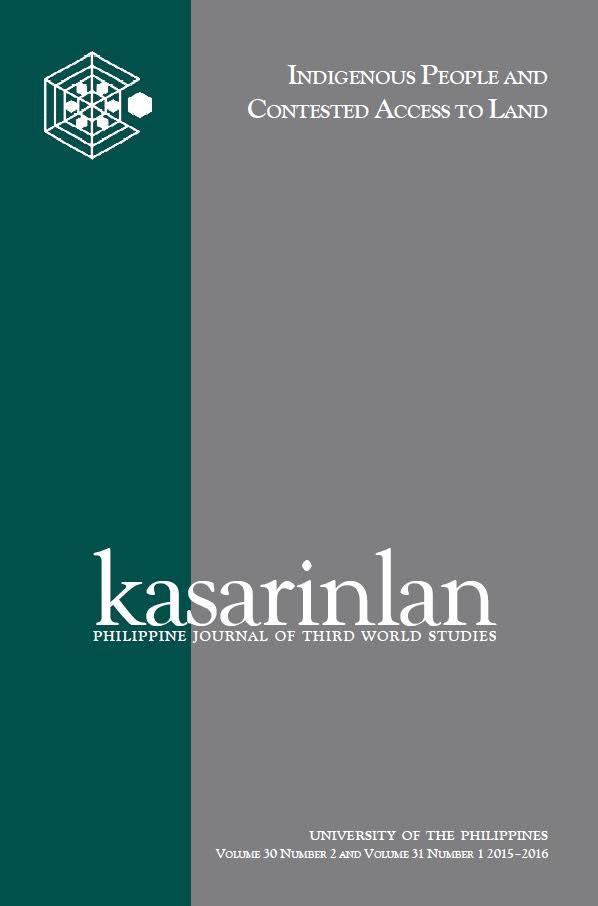No End to Lumad Dislocation from Their Homeland: The Case of the Sarangani Manobo and B'laans in Davao Occidental
Abstract
The Lumads and Moros of the island of Mindanao have long been facing a history of dislocation from their homelands. This history started with the Spanish proselytization and attempted colonization of Mindanao, which then intensified with the entry of the United States of America as the new ruler of the Philippines. Policies were established to initiate a type of colonization that severely impacted Mindanao’s indigenous population, changed its landscape, and altered its history. The end of the Second World War saw the expansion of agribusinesses and mining operations in the region. The encroachment of the mining industry into the uplands impacted the ancestral territories of the Lumads. Highlighted in this article is the case of the Sarangani Manobo and B’laans in Jose Abad Santos, Davao Occidental. This is a story of their displacement, their response to the passage of the Indigenous Peoples’ Rights Act, their endeavor toward securing a certificate of ancestral domain title, and how they are losing their farmlands to peasants, businessmen, and even other immigrant Lumads.



